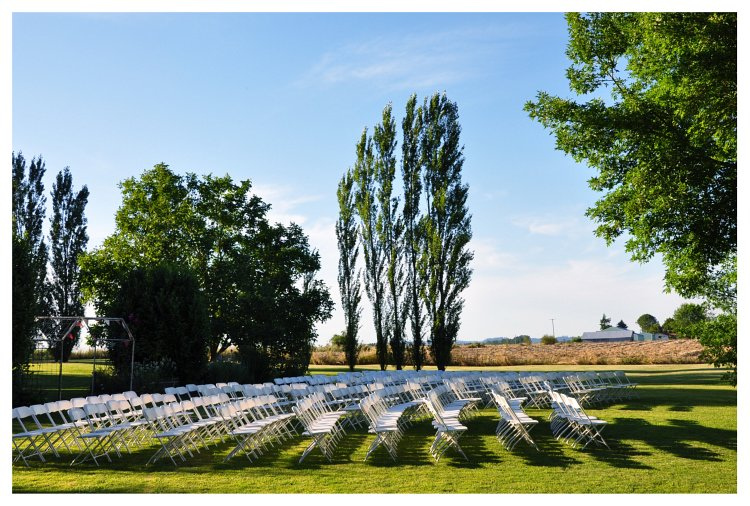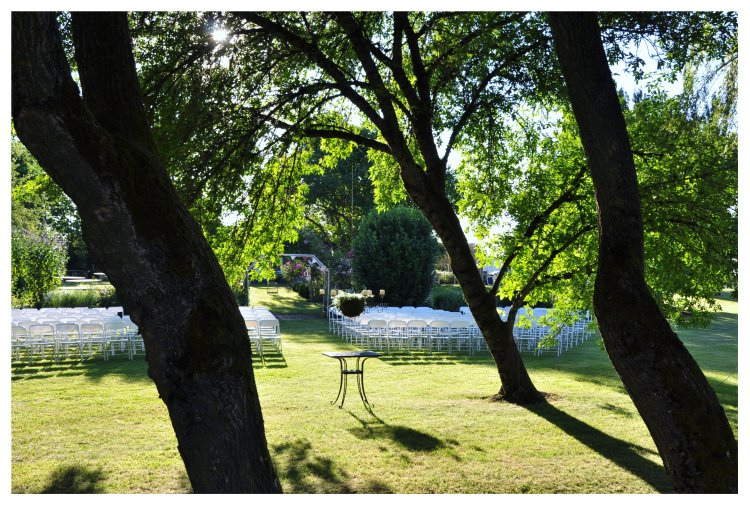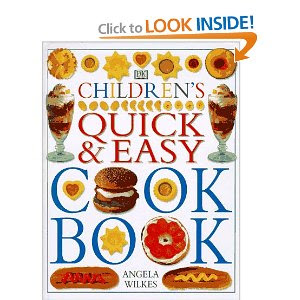his and mine are the same.
~Emily Brontë


No one does birthday parties quite like my best friend, Char. Her son and daughter's birthdays fall in the same week in June, so she alternates years giving them awesome birthday bashes. The Alice in Wonderland party was one of my favorites (and the Knight and Fairy Princess parties at Enchanted Forest), but the Indiana Jones theme this year was FABULOUS. I simply can't believe the amount of work she goes to (because it is one of her favorite things to plan and pull off!) as well as all the details she thinks up!
This year, she planned an elaborate adventure/treasure hunt for the kids led by Indiana Jones (my really great sport of a brother-in-law, Ben). Each child was given an Indiana Jones hat and a camoflage satchel to gather their treasures and clues in. They went through snake pits, turned each other into mummies, completed a short obstacle course and were shot at by 'poisonous darts' as they came out of the tunnel, and more. They received (fake) snakes, binoculars, compasses, and 'gold' coins for treasures. At the end of their adventure, they found a treasure chest pinata!
All the action was followed up with an awesome BBQ dinner and the incredible cake Char made! I don't know how she'll top this one, but I know I'm marking that weekend out on next year's calendar.
"The postindustrial economy is indifferent to men’s size and strength. The attributes that are most valuable today—social intelligence, open communication, the ability to sit still and focus—are, at a minimum, not predominantly male. In fact, the opposite may be true."
'When we praise people who do work that is straightforwardly useful, the praise often betrays an assumption that they had no other options...
'If the goal is to earn a living, then, maybe it isn’t really true that 18-year-olds need to be imparted with a sense of panic about getting into college (though they certainly need to learn). Some people are hustled off to college, then to the cubicle, against their own inclinations and natural bents, when they would rather be learning to build things or fix things. One shop teacher suggested to me that “in schools, we create artificial learning environments for our children that they know to be contrived and undeserving of their full attention and engagement. Without the opportunity to learn through the hands, the world remains abstract and distant, and the passions for learning will not be engaged.” '
'Linda Hirshman claims that “the family—with its repetitious, socially invisible, physical tasks—is a necessary part of life, but allows fewer opportunities for full human flourishing than public spheres like the market or the government.” Many people would no doubt find unpaid household chores less interesting than Professor Hirshman’s job … But walking up and down the supermarket aisle selecting food for a family dinner is a job that has more variety and autonomy than the paid work being done by the supermarket employees who stack the same shelves with the same food day after day, and those who stand in a narrow corner at the checkout counter all day tallying up the costs of purchases, and the workers next to them who pack the purchases into paper or plastic bags. That space in the market is a bit cramped for human flourishing.'
Or, if you'd like to get really annoyed with the entitlement attitude of the new generation (which segues nicely into thought #6), you can read American Dream Is Elusive for New Generation at The New York Times. (Emphasis and [ ] comment are mine.)
6:: On Prolonged Adolescence: Long Road to Adulthood Is Growing Even Longer at The New York Times.After several interviews, the Hanover Insurance Group in nearby Worcester offered to hire him as an associate claims adjuster, at $40,000 a year. But even before the formal offer, Mr. Nicholson had decided not to take the job. Rather than waste early years in dead-end work, he reasoned, he would hold out [while living with his parents and letting them pay his expenses] for a corporate position that would draw on his college training and put him, as he sees it, on the bottom rungs of a career ladder....
For young adults, the prospects in the workplace, even for the college-educated, have rarely been so bleak. Apart from the 14 percent who are unemployed and seeking work, as Scott Nicholson is, 23 percent are not even seeking a job, according to data from the Bureau of Labor Statistics. The total, 37 percent, is the highest in more than three decades and a rate reminiscent of the 1930s.
“A new period of life is emerging in which young people are no longer adolescents but not yet adults,” Mr. Furstenberg said.
And Why Young Men Delay Adulthood to Stay in Guyland (originally for Newsweek).
In his new book, "Guyland," the State University of New York at Stony Brook professor notes that the traditional markers of manhood—leaving home, getting an education, finding a partner, starting work and becoming a father—have moved downfield as the passage from adolescence to adulthood has evolved from "a transitional moment to a whole new stage of life." In 1960, almost 70 percent of men had reached these milestones by the age of 30. Today, less than a third of males that age can say the same.
"Making any sort of moral judgment is always bad, unless it reflects a mainstream piety, one of which is the wickedness of moral judgments. People who make any other sort of judgment are not attractive and lead lives the hero and the reader know they do not want to lead."
'We are living in a time when sensitivities are at the surface, often vented with cutting words. Philosophically, you can believe anything, so long as you do not claim it to be true. Morally, you can practice anything, so long as you do not claim that it is a "better" way.'
“Keep your love of nature, for that is the true way to understand art more and
more.” ~ Vincent Van Gogh

We've enjoyed several years of celebrating during the 4th of July weekend at our friend, Bob's, house on Lake Oswego. We always know we'll be well-fed (his ribs and slaw are amazing), the company will be terrific (some of the nicest people, evah!), and the view will be spectacular.
Russ brought along our remote-controlled boats, and the boys had fun with them down at the dock (and spent a short amount of time in the water, themselves).
Bob had his boat out this year, so the boys and I enjoyed a tour of the lake in PERFECT weather. Yowsa, wowsa. Those houses are to-die-for. Eenie, meenie, minie, mo. If only I had a few million dollars.



21. Twilight by Stephenie Meyer. (Borrowed from the library. Book club selection. 498 pages. 1 day. Yeah, I know.) WARNING: Long review with spoilers for the two people who haven't yet read this book.
Brilliant. The author delivers EXACTLY what the reader (of Twilight) wants. Any guesses? It isn't superb writing. It isn't a complex plot. It isn't witty dialogue. It isn't breathtaking descriptive passages. It isn't fascinating ideas to keep one thinking long after the book is closed.
The reader wants to BE the female lead in an emotionally intense romantic story. She wants to be HERSELF, in a common place, with an extraordinary experience. She wants to feel not just wanted, but obsessed over. Not just beautiful, but irresistible. Not just popular, but worthy. And she wants the chance to give herself over completely to the experience, no matter the cost, no matter the danger--yet be protected/saved by the person with whom she is risking everything. Yep. Stephenie Meyer delivers. Spectacularly, I might add.
When you enter Twilight, you don't have to live vicariously through the story of a beautiful woman in an exotic location. Nope. You get to be you--with all your insecurities, your low self-esteem, your empty life, your angst. You get to be Bella in the rainy Pacific Northwest. Your father and mother are like children. You have never been part of the in-crowd. You don't fit in. You're invisible. You're plain. You're physically awkward. You're the new girl in a depressing, ordinary place. You're writing the story in first person.
You don't have to wait long to feel a change in the atmosphere. (It's a good thing. We're at the fast food counter, here.) You're the new girl--suddenly mysterious, fascinating. The boys are lining up. But you aren't the typical (shallow, unimaginative) girl, of course. You don't want just any boy. You want THAT one: the mysterious, fascinating, exotic guy across the cafeteria, the rich one with the fancy sports car, the one who makes your hair stand on end. You want the one who can make an author spend an entire book convincing/reminding the reader how unnaturally god-like he is, and run out of original ways to say it on page 50 of a 500 page book. Let's not even get started on his eyes.
Just looks and a fancy sports car aren't enough for you. (Besides, it's his eyes that intoxicate you; who has time to notice anything else?) He can do EVERYTHING superbly. He's insanely smart. He drives at 125 miles an hour. He has super-human strength, speed, and reflexes. He plays the piano more brilliantly than Rachmaninoff. He has to play baseball in a thunderstorm because the crack of the bat sounds like lightning. He reads minds. (Except yours, of course. You are his kryptonite, which makes him irresistibly flustered and vulnerable only when he's with you.)
But, oh, wait! There's more! Not only is he the (supernaturally) best looking teenager in the school/world complete with supernatural talents, he has all the attraction of an older man and the charm of the early 1900s: he can dance, he is elegant, he has beautiful handwriting, he appreciates classical music and good books!
(I swear, this is almost as addicting as the Dr. Pepper I'm drinking to stay up late enough to finish this book in one day....)
So, we've established that he is the best looking, most talented, charming, teenager/older man, but we're not through. He's dangerous. Deadly so. He's the tormented bad boy (and that's an understatement). You get all the angst. The up and down roller coaster of moods. The obsession. The stalking. The smouldering emotional passion.
Ah, but even though you are 'the addict's personal brand of heroin,' he loves you. Not only loves you, but loves you supernaturally in a way he has never before experienced in his looooooong life. He will fight every urge to consume you physically, will summon up a supernatural self-control in order to save you, to protect you. So now he is the bad boy turned personal savior. Awesome.
Feeling faint in biology class? He'll carry you to the school nurse. Almost run over by a van? He'll stop the vehicle with his hands while shielding your body. Trapped by a gang of guys in a dark alley? His sports car will screech up at the last minute and he'll order you to get in (and take you out for dinner so that his jealous/protective instincts don't cause him to hunt the guys down and kill them).
He knows that he is bad for you, but he's between a rock and a hard place. You need him and he needs you. Life has no meaning apart from your love and desperate need to be together.
You make up your mind. No risk or cost is too great. You can't live without him, so you put your life in his hands, offering yourself to him. He summons that inhuman self-control, and your life is safe. Luckily, a single kiss (with a vampire) packs enough physical and emotional punch to make up for the absence of other things.
The danger intensifies. Now you are being hunted by the deadliest tracker on earth. It will take the efforts of seven supernatural beings to protect you, but you are worthy. You almost die as the hunter traps and savagely attacks the hunted (because you nobly offer your life in the place of another), but your personal avenging angel saves you at the very last moment in his most agonizing moment of self-denial.
Then everyone lives happily ever after... at the high school prom. (And only if you can resist reading the sneak peek of the sequel placed for your convenience at the end of the book.)
The best part? You may read this even if you are only ten years old because there is NO SEX. But your mother will enjoy it, too. Because, deep down, it just isn't about sex. It is about a deep, compelling, emotional hunger to be someone's EVERYTHING. To be desired. To be worthy. To dangerously offer every part of yourself...and be protected in return.
{Suddenly, unexpectedly, as I'm sitting here typing this review, it hits me with a knock-my-breath-away force. We were created with this desire, but on a staggeringly grander scale--with a more breathtaking culmination possible. The parallels are jumping out at me. Here's a PSA: God's got it all covered. I'd quote C. S. Lewis right here, but I think it would be sacrilegious to do so in a review of Twilight. Plus, I can't find the exact passage I'm looking for. ETA: Give these quotes a try.}
ETA: I am not endorsing this book. I am simply describing what it felt like to read it. And I am certainly not recommending that you let your ten-year-old daughter read it. (I apologize if my sarcastic tone didn't come across in the writing.) I think the theme I proposed could be much more insidious than any sexual situations, for young girls and their mothers alike, not to mention that this is, indeed, a book about vampires.
[On a MUCH LESS serious note, for those of you who missed this article when I linked it some time ago: What do you get when you mix vampires with the Amish and the End Times? The Ultimate Christian Novel. Am I the only one dying laughing?]
In the anticlimactic finale, we have the other three books I read this month:
20. The Core: Teaching Your Child the Foundations of Classical Education by Leigh A. Bortins (Purchased from Amazon. 215 pages. A week of reading.) Lengthy review can be found at this link.
pg. 5
The classical model emphasizes that learning feeds the soul and edifies the person rather than producing employees to work an assembly line. The goal of a classical education is to instill wisdom and virture in people. We see learning as a continuing conversation that humankind has been engaged in for centuries, and we are concerned that industrialization and technologies reduce contact and context between children and their elders.
pg. 14
The goal of education is to teach children to become adults who can handle complex ideas, in uncertain situations, with confidence.
pg. 15
The purpose of a classical education is to strengthen one's mind, body, and character in order to develop the ability to learn anything.
pg. 37
Today's educators reject the importance of preparing our next generation to enter the great classical conversations of history because they no longer believe there is a core body of knowledge common to man. So personal opinion has trumped universal truth, expediency has displaced goodness, and edginess has shoved aside beauty. Families no longer know that a great classical conversation exists and that their children could become its most interesting participants.
pg. 40
Classical education encourages us that we are capable of becoming an Oxford don who builds bicycles, or a plumber who reads Milton, or a business owner who spouts theology. The classically educated are not defined by their occupation so much as by their breadth of knowledge and understanding.
pg. 47
Classical education is analogous to brain training. When encountering new information, the brain must know how to store data (grammar), retrieve and process data (logic), and express data (rhetoric).
pg. 48
A student must begin with grammar no matter their age or the topic. Grammar is essentially defined as the science of vocabulary. Every occupation, field of study, or concept has a vocabulary that the student must acquire like a foreign language before progressing to more difficult or abstract tasks within that body of knowledge.
pg. 51-52
Educated children are building a permanent, organized storage system in the brain with key ideas that they will continue to use lifelong... No matter what your children's strengths and weaknesses are, or their likes and dislikes, or their gifts and talents, their brains want to gather, sort, store, and retrieve information.
pg. 61
We need to offer children a broad, freeing education that allows them to think well and to be lifelong learners. Children need to be prepared for any challenge, even for job opportunities that may not exist until well into the future.
pg. 71
We want children to recognize the difference between expressing an opinion and developing a logical conclusion through induction or deduction. That doesn't mean they can't or don't express feelings or opinions. They just need to recognize that it is a feeling or opinion.
pg. 103
In order to read well, you need to spend lots of time reading. Words need to be savored, laughed at and cried over, wrestled with, and stomped on. They should hit us in the head, knock us off our feet, and spin us around. Words should be the thoughts in our heads that comfort, challenge, sharpen, soften, frighten, and embolden.
pg. 169
Often an artificial tension is presented between the goal of teaching basic skills and core content. To classical educators, both are needed. While we emphasize the practice of skills, we need excellent material to practice on. Classical educators go out of their way to ensure that the content is of enduring quality.